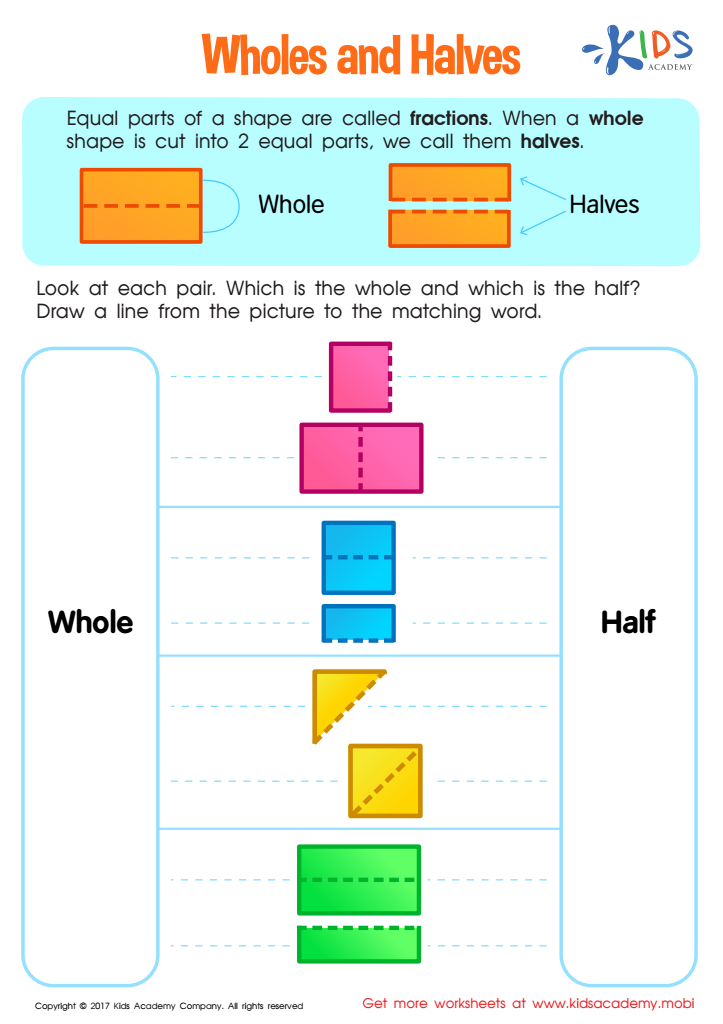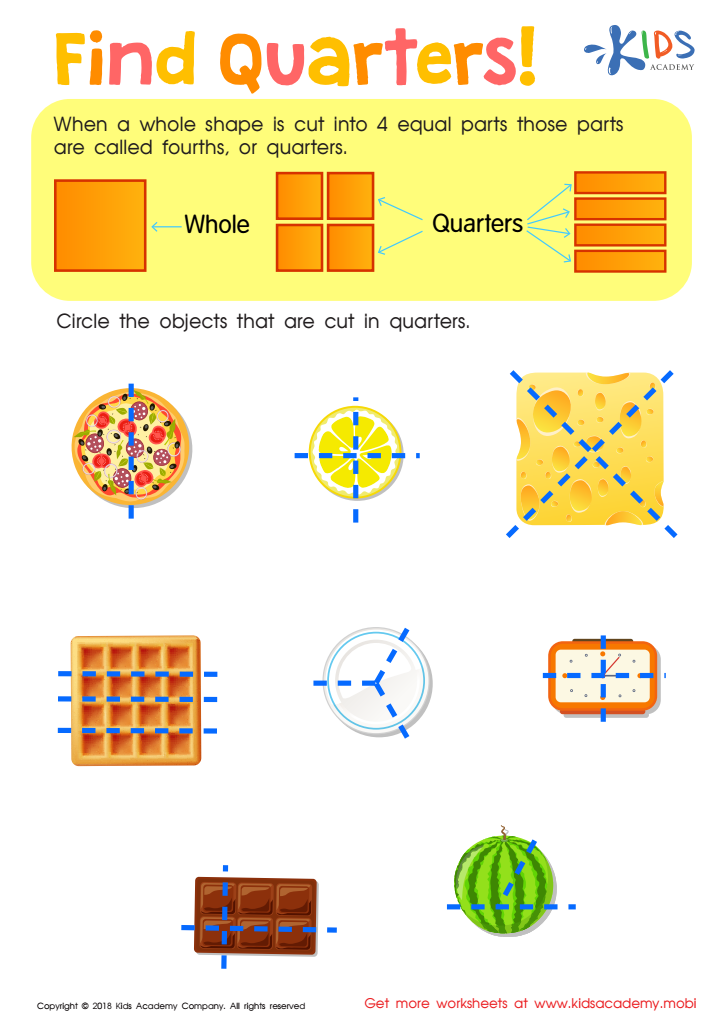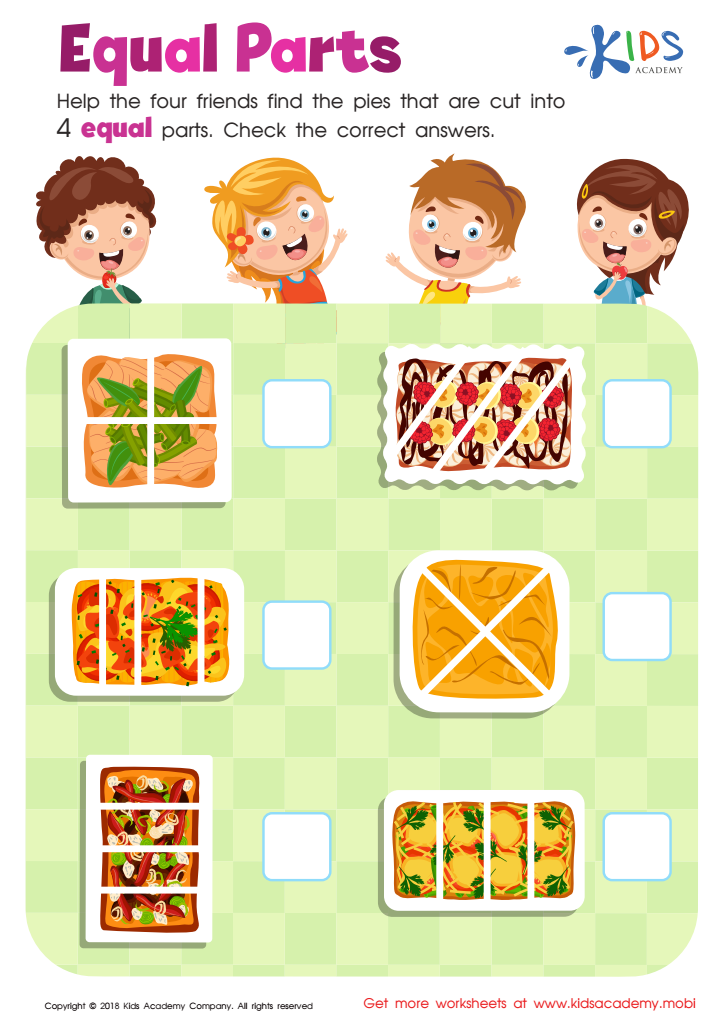Understanding fractions Normal Geometry Worksheets for Ages 5-6
3 filtered results
-
From - To
Welcome to our "Understanding Fractions Normal Geometry Worksheets" designed for children ages 5-6! These engaging worksheets introduce young learners to the concept of fractions through fun, visually appealing activities. Children will explore fractions using shapes and everyday objects, helping them grasp the basics of division and part-whole relationships. Each worksheet is crafted to enhance learning while fostering creativity and critical thinking skills. Perfect for home or classroom use, our worksheets encourage hands-on learning and make understanding fractions enjoyable. Instill a solid foundation in mathematics through interactive practice, setting the stage for future success in geometry and beyond!


Wholes and Halves Worksheet


Find Quarters Worksheet


Equal Parts: Food Worksheet
Understanding fractions and basic geometry is crucial for children aged 5-6 as it lays the foundation for their mathematical skills and overall cognitive development. At this developmental stage, children are naturally curious and eager to explore concepts through hands-on experiences. Teaching fractions introduces them to the idea of parts and wholes, which is essential for grasping more complex mathematics later on, such as addition, subtraction, and even multiplication. It fosters logical thinking and boosts problem-solving skills, which are valuable beyond math.
Geometry at this age makes children aware of shapes and their attributes. Through interactive activities, children can learn to identify, sort, and compare different geometrical shapes, enhancing their spatial awareness and critical thinking abilities. These concepts are not just academic; they are intertwined with daily experiences—like dividing a pizza, measuring ingredients for a recipe, or recognizing shapes in their environment.
When parents and teachers emphasize these skills, they engage children in meaningful learning experiences that promote confidence and enthusiasm for math. This foundational understanding ultimately lays the groundwork for lifelong mathematical competency, preparing children for future academic endeavors and real-world applications. By nurturing these interests early on, we help children develop a positive attitude toward learning and an openness to new challenges.
 Assign to My Students
Assign to My Students































